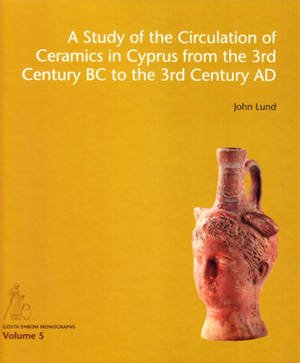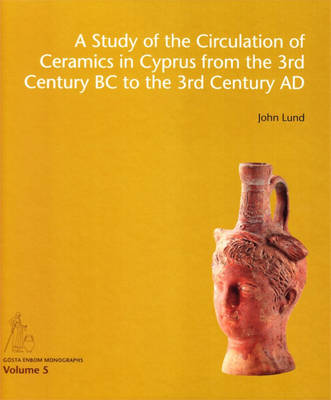
Bedankt voor het vertrouwen het afgelopen jaar! Om jou te bedanken bieden we GRATIS verzending (in België) aan op alles gedurende de hele maand januari.
- Afhalen na 1 uur in een winkel met voorraad
- In januari gratis thuislevering in België
- Ruim aanbod met 7 miljoen producten
Bedankt voor het vertrouwen het afgelopen jaar! Om jou te bedanken bieden we GRATIS verzending (in België) aan op alles gedurende de hele maand januari.
- Afhalen na 1 uur in een winkel met voorraad
- In januari gratis thuislevering in België
- Ruim aanbod met 7 miljoen producten
Zoeken
A Study of the Circulation of Ceramics in Cyprus from the 3rd Century BC to the 3rd Century AD
John Lund
€ 91,95
+ 183 punten
Omschrijving
This is the first monograph devoted solely to the ceramics of Cyprus in the Hellenistic and Roman Periods. The island was by then no longer divided into kingdoms but unified politically, first under Ptolemaic Egypt and later as a province in the Roman Empire. Submission to foreign rule was previously thought to have diluted - if not obliterated - the time-honoured distinctive Cypriot character. The ceramic evidence suggests otherwise. The distribution of local and imported pottery in Cyprus points to the existence of several regional exchange networks, a division that also seems reflected by other evidence. The similarities in material culture, exchange patterns and preferential practices are suggestive of a certain level of regional collective self-awareness. From the 1st century BC onwards, Cyprus became increasingly engulfed by mass produced and standardized ceramic fine wares, which seem ultimately to have put many of the indigenous makers of similar products out of business - or forced them to modify their output. Also, the ceramic record gradually became less diverse during the Roman Period than before - developments which we today might be inclined to view as symptoms of an early form of globalisation.
Specificaties
Betrokkenen
- Auteur(s):
- Uitgeverij:
Inhoud
- Aantal bladzijden:
- 390
- Taal:
- Engels
- Reeks:
- Reeksnummer:
- nr. 5
Eigenschappen
- Productcode (EAN):
- 9788771244502
- Verschijningsdatum:
- 26/10/2015
- Uitvoering:
- Hardcover
- Formaat:
- Genaaid
- Afmetingen:
- 221 mm x 246 mm
- Gewicht:
- 1632 g

Alleen bij Standaard Boekhandel
+ 183 punten op je klantenkaart van Standaard Boekhandel
Beoordelingen
We publiceren alleen reviews die voldoen aan de voorwaarden voor reviews. Bekijk onze voorwaarden voor reviews.









